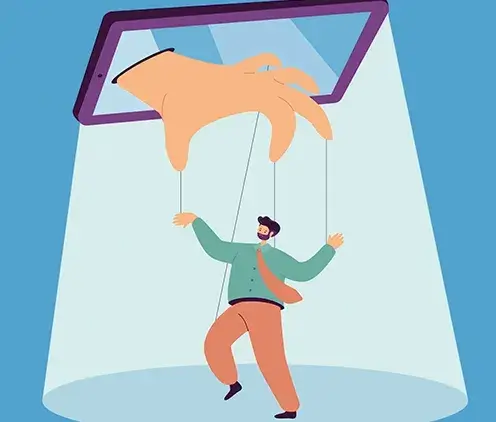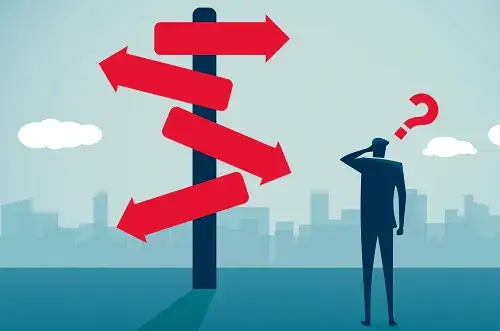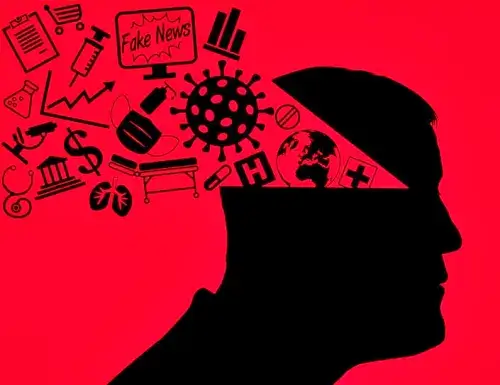Media Bulimia. In our hyper-connected world, information is constantly at our fingertips. Yet, this abundance, while seemingly beneficial, can lead to a modern malaise: media bulimia.
This phenomenon, characterized by the compulsive consumption of information followed by feelings of distress and confusion, is a growing concern.
Media Bulimia and Overload.
The dangers of excessive information aren’t a new discovery. As far back as the 3rd century BCE, the ancient philosophical treatise “Ecclesiastes” warned about the weariness of much study and the endless pursuit of knowledge.
While the term “information overload” itself only emerged in 1964, coined by political scientist Bertram Gross and later popularized by American philosopher Alvin Toffler, the underlying concept has ancient roots.
In the 21st century, the proliferation of digital media has brought these concerns to the forefront. Scientists and psychologists are increasingly discussing the consequences of this information deluge, with “media bulimia” being a prime example of a prevalent contemporary affliction.
What is Media Bulimia?
While the term “media bulimia” might be relatively new, its symptoms have been described by many psychologists. This concept, defined just four years ago, draws a powerful analogy to the eating disorder bulimia nervosa.
Understanding Bulimia Nervosa.
Bulimia nervosa is an eating disorder marked by recurrent episodes of binge eating, followed by compensatory behaviors such as self-induced vomiting, excessive exercise, or the misuse of laxatives or diuretics.
Individuals with bulimia often exhibit an intense preoccupation with food, body image dissatisfaction, and an overwhelming fear of weight gain. It’s a distressing and serious condition.
The Analogy to Media Consumption.
Just as bulimia nervosa involves an unhealthy relationship with food, media bulimia describes an unhealthy relationship with information.
It’s an addiction to the sheer volume of news and content consumed, often without conscious awareness or control, leading to feelings of distress and emptiness after an “information binge.”
As psychologists have noted, “easily accessible news evokes a sense of revulsion.” This often leads to a subsequent period of information deprivation and self-reproach, creating a vicious cycle.
Such fluctuations contribute to the development of depressive states and psychosomatic disorders.
Furthermore, prolonged exposure to information overload can gradually manifest as attention deficit hyperactivity disorder (ADHD)-like symptoms, impairing focus and concentration.
This “special illness” primarily affects younger generations, who spend a significant portion of their lives online.
While there’s a widespread belief that digital literacy helps individuals navigate information threats and overload, a study by the “EU KIDS ONLINE” project, which investigated youth internet usage, found this not to be entirely true.
A pedagogy associate professor pointed out that the main risks are linked to social media, chats, and incessant pop-up notifications.
The Information Avalanche: Drowning in Data.
Information doesn’t just surround us; it demands interaction. This results in an endless array of sources for any problem, constantly distracting us with advertisements, business communications, personal messages, and spam.
We are, in essence, grappling with an uncontrollable flow of information.
Some harbor the illusion that readily available information makes us more progressive. However, the reality is often quite the opposite. An abundance of sources doesn’t guarantee their reliability, leaving us in an era of widespread disinformation.
Furthermore, research has shown that the more choices we have in information sources, the harder it becomes to navigate and make informed decisions in the world around us.
This leads to a pervasive sense of confusion and a chronic lack of concentration.
For years, psychologists, sociologists, and philosophers have warned about the “side effects” of constant online presence, especially during work, school, and vacation.
The regular, rapid-fire shifts in information- often with contradictory content, whether text, video, or images, leave us bewildered, irritable, and depressed.
In our attempt to keep up with the times, we often stop reading texts deeply, reflecting on them. Consequently, we lose the ability to truly comprehend what we read and, more importantly, the capacity to deeply analyze complex phenomena.
Information and the Erosion of Reading Culture.
The habit of “reading diagonally,” common among users trying to consume as much information as possible, leads to a decline in reading culture.
This makes us more “programmable,” as we become accustomed to reacting to simple and familiar online cues. Superficial skimming and the constant opening of new tabs are telltale symptoms of media bulimia.
The paradox lies in the fact that even when individuals realize the absurdity of their current situation, many cannot stop consuming information they don’t truly need.
The Illusion of Knowledge as Power.
We are convinced that information grants power, leading us to believe that the more information we possess, the stronger and more significant we become.
The question of whether the received information is necessary or of high quality takes a backseat. We can’t predict what will be relevant next week, so everything is “absorbed” just in case, without real necessity.
Social media platforms, like Twitter, only exacerbate this situation. The thought of someone like Donald Trump to Twitter under Elon Musk’s ownership further highlights the potential for the information landscape to be irredeemably tainted with a significant negative impact on logical understanding.
The feelings of emptiness, degradation, inability to concentrate, or make concrete choices can lead to nervous breakdowns, despair, depressive states, and temporary disconnections from the knowledge network.
However, the cycle soon repeats, much like with food addiction. Users consume indiscriminately, feel guilty about wasted time, yet remain dependent on online content and inevitably return to their “online” status.
Escaping the Grip of Media Bulimia, Taking Control.
So, what measures can help us avoid media bulimia? The answer lies in self-reflection and conscious action.
You must ask yourself: “Do I really need to read or watch this? Does this truly concern me?”
The key is to regulate the sheer volume of information you consume, an adjustment that depends entirely on your own awareness. Here’s how you can avoid falling into the “media bulimia” trap:
1. Define Your Information Needs and Goals.
The internet offers a colossal amount of information, from articles and blogs to videos and social media posts. First and foremost, it’s crucial to identify your specific interests and goals when using the internet.
• Are you seeking the latest news?
• Do you want to learn something new?
• Are you simply looking for entertainment?
Answering these questions will help you determine what kind of information to seek and how much time to allocate to it.
2. Choose Reputable Sources.
Select trustworthy online resources that offer quality and verified information. For example, opt for scientific research, reliable news portals, or authoritative blogs.
Avoid dubious sources that might present false or misleading information. Just as you wouldn’t eat spoiled food, you shouldn’t consume questionable information.
3. Utilize Filters and Limitations
Various internet services and browsers offer filters and limitations to help regulate information volume.
For instance, you can install ad blockers to reduce the number of advertisements you encounter online. You can also use social media settings to limit the news feed from specific sources, curating your digital environment.
4. Establish Time Limits.
It’s incredibly easy to get caught in the online vortex and spend hours Browse. To regulate your information intake, establish time limits. Set a specific amount of time each day that you will dedicate to Browse the internet or using social media.
This will help you maintain a balance between acquiring information and engaging in other daily activities. Not all pieces of information are equally valuable. Choose quality content that is informative, interesting, and educational.
Read well-written articles, watch educational videos, and follow authoritative sources.
5. Be Mindful of Social Media Consumption.
Social media can be a powerful tool for connecting with others and staying updated. However, it can also be a significant source of information overload.
Limit the time you spend on social media platforms and critically evaluate which news truly merits your attention. Remember, not everything published on social media is factual or worthy of your precious time.
You Are in Control.
Always remember that you are at the center of your own control. You decide how much information you want to consume and how much attention to give it.
Don’t allow unnecessary information to overwhelm your life or negatively impact your emotional state. Being informed is important, but it doesn’t mean becoming a slave to information.
So, to regulate your information intake online: clarify your interests and goals, choose reliable sources, utilize filters and limitations, establish time limits, select quality content, limit social media usage, and always remember that you are in control.
Enjoy the internet, but don’t let it consume your life!
Have a good day!







